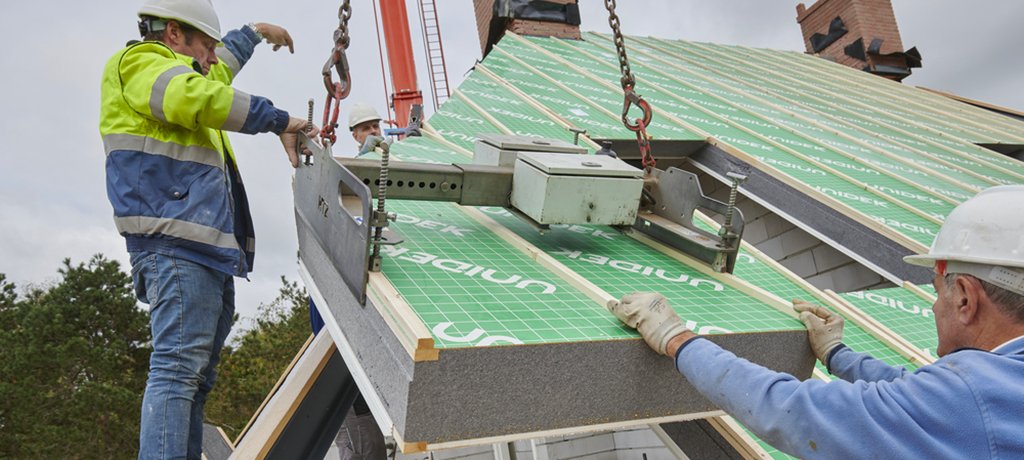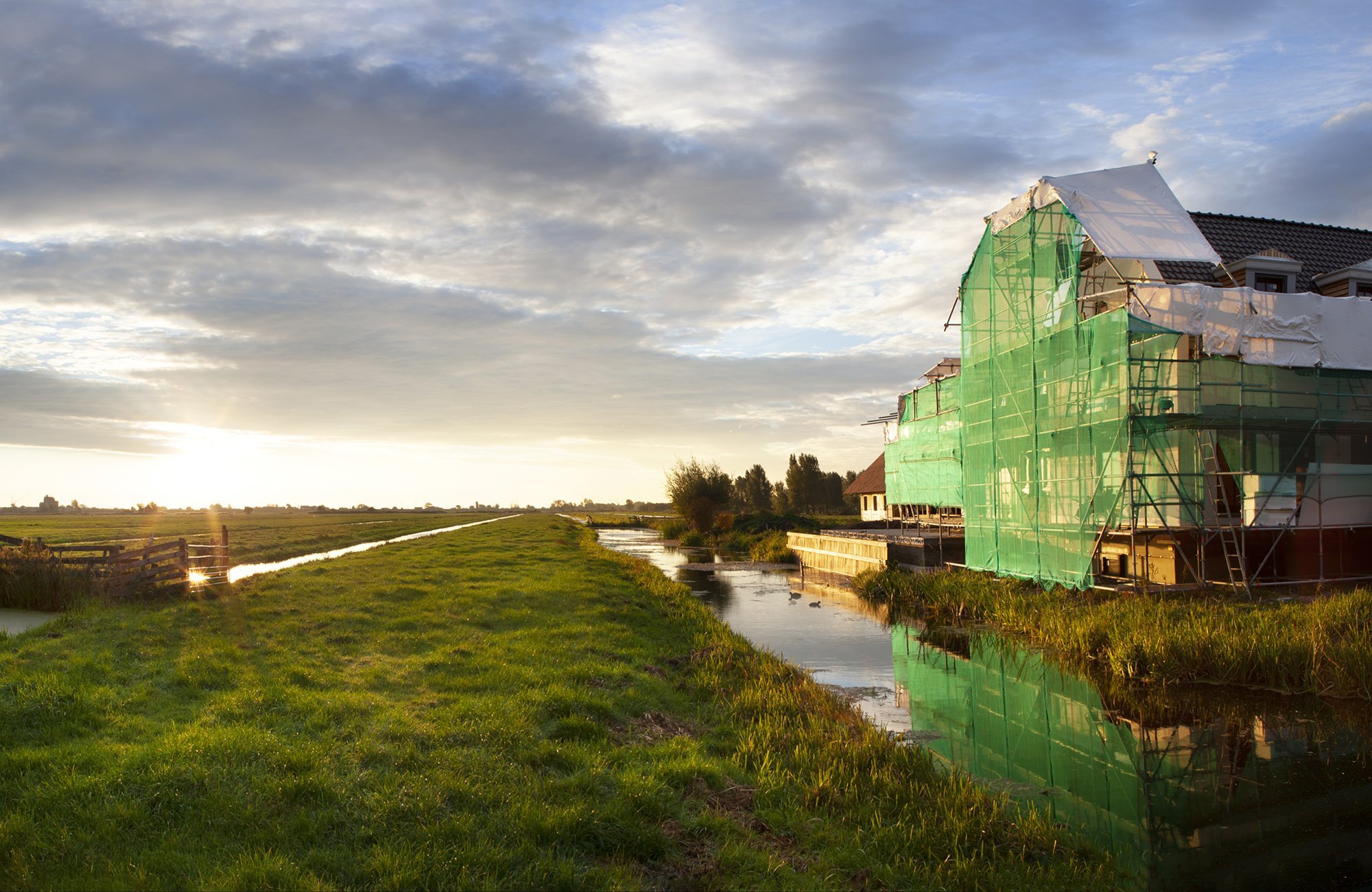Highlighted, category 1 environmental declaration - Roofing element Unidek Aero 9.0
Every month we highlight a category 1 product to stimulate the development of these environmental declarations in the National Environmental Database. This month we’re focusing on the ‘Unidek Aero 9.0 Passive roofing element, insulation layer for sloping roofs’.

Description
Unidek Aero is a structural and insulating roofing element for detached and terraced new-build homes. The core of the element comprises EPS Platinum. The Unidek Aero roofing element is available in RC values up to 10.0 m2 K/W. Unidek Aero 9.0 has an RC value of 9.0 m2 K/W and is suitable for Passive House construction.
| Supplier | Kingspan Unidek |
| Product components | Unidek Aero 9.0 Passive |
| Functional unit (FU) | per square metre |
| Lifespan | 75 years |
| ECI per FU | 4.4109 |
| Scalable | yes |
What does Kingspan Unidek do?
Kingspan Unidek is a producer and supplier of innovative solutions for fast and efficient construction and insulation. We make products based on EPS (expanded polystyrene). This includes roof panels for sloping roofs and EPS systems for flat roofs, walls and floors. These solutions make an active contribution to energy saving and living comfort optimisation.
What was the reason to include your product in the NMD as a category 1 environmental declaration?
As Kingspan Unidek, we started making our own LCAs about the entire factory and complete product range. We use these LCAs to see which environmental impact is the biggest and how we can reduce this. We can also demonstrate environmental performance per product and better inform the customer about the product’s sustainability.
What makes the product sustainable?
EPS is s sustainable product because very little energy is consumed per square metre. We produce a large proportion of the energy we use ourselves via solar power from our solar collectors that have a capacity of some 4.7 MW!
Water is also used in the production of EPS. The water we use largely comes from our basement rainwater harvesting. This means we use a minimal amount of drinking water. Another major advantage of EPS is that it is extremely circular. EPS can easily be broken down and reused in the production process.
Are there plans to further reduce the product’s environmental impact? And if so, with respect to which environmental impact?
The next step in making our process more sustainable is our natural gas consumption. We have already taken various measures to drastically reduce our gas consumption but our end goal is to switch completely from gas to a sustainable energy source.
We are also currently examining the circularity of all EPS that originates from the demolition of buildings. In the past, a flame retardant was used that is not permitted for reuse today. The PS loop will resolve this. A factory recently opened in Terneuzen to restore contaminated EPS to Polystyrene (PS). This Polystyrene can then be processed into our raw material so we can make new products with it. As stated, the factory is already up and running, but in the future it must be possible to reuse all EPS in this way.
This page has been translated using DeepL
Blijf op de hoogte
Meld je aan voor onze nieuwsbrief en ontvang maandelijks updates over duurzaam bouwen, milieuprestatie, milieudata, beleid en ander relevant nieuws vanuit Stichting NMD.
